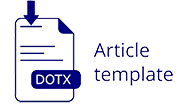IMPLEMENTATION OF LEARNING MODELS TEAM GAME TOURNAMENT TO IMPROVE STUDENTS 'ENGLISH LEARNING ACHIEVEMENT (A class Action Research at Grade X IPA-2 MAN 1 Pati 2019/2020)
Abstract
The purpose of this study was to determine whether the Team Game Tournament (TGT) Learning Model improves the English learning achievement of students of The class X IPA-2 odd semester Madrasah Aliyah Negeri 1 Pati in the 2019/2020 academic year. The design of this study is a classroom action research conducted in three cycles. Each cycle consists of planning, implementing, observing and reflecting. The research subjects were students of The class X IPA-2 odd semesters Madrasah Aliyah Negeri 1 Pati in the 2019/2020 academic year. The research variables consist of student achievement variables and teacher activity variables. The data collection method is the observation questionnaire method, and the test method. The data analysis method is qualitative data analysis. From the results of the study, information was obtained that there was an increase in the English learning achievement of The class X IPA-2 students in the odd semester of Madrasah Aliyah Negeri 1 Kudus for the 2019/2020 academic year. This increase is indicated by: (1) the average student achievement in cycle I is 7.14; in the second cycle cycle was 7.44; and in cycle III is 8.84; (2) student learning completeness in cycle I was 17 students or 47.22% and 19 students or 52.78% who did not complete; in cycle II students who completed were 26 students or 72.22% and those who did not complete were 10 students or 27.78%; in cycle III, students who completed 36 students or 100% and there were no students who did not complete; (3) completeness of classical learning in the first cycle was 47.22%, in the second cycle it was 72.22; and in cycle III it reaches 100%. This means that it has reached the predetermined indicator. Besides that, there is also an increase in student activity during the learning process, both individually and in groups. Student responses or responses to the application of the TGT learning model were classified as high, reaching 83.14%.
Keywords
Full Text:
PDFReferences
Arikunto, S. (2006). Prosedur Penelitian: Suatu Pendekatan Praktik, Edisi. Revisi VI. Jakarta: PT Rineka Cipta.
Burns, A. (2010). Doing Action Research in English Language Teaching A Guide for Practitioners ESL amp Applied Linguistics Professional Series.Creswell, J. W. (2014). Research Design: Qualitative, Quantitative, and Mixed Methods Approaches (V. Knight, J. Young, & B. Bauhaus (eds.); 4th ed.). SAGE Publications, Inc.
de Houwer, J., Barnes-Holmes, D., & Moors, A. (2013). What is learning? On the nature and merits of a functional definition of learning. Psychonomic Bulletin and Review, 20(4), 631–642. https://doi.org/10.3758/s13423-013-0386-3
Gagne, R. M. (2011). The Conditions of Learning. In Alain Badiou: Key Concepts (2nd ed.). HOLT, RINEHART and WINSTON, Inc. https://doi.org/10.1017/UPO9781844654703.005
Hanifah, & Firman. (2019). Model Pembelajaran Teams Games Tournaments Dan Motivasi Belajar Peserta Didik. Jurusan Pendidikan Dasar Dan Bimbingan Dan Konseling Fakultas Ilmu Pendidikan UNP, January.
Johnson, D. W., & Johnson, R. T. (1991). Cooperative learning and classroom and school climate. Educational Environments, 55–74.
Mcclellan, J. E. (1982). Concept of Learning: Once More with (Logical) Expression. 51, 87–116.
Mcniff, J. (2002). Action Research: Principles and Practice.
Muhartoyo. (2007). Introduction to Research Methodologies. Jurnal LINGUA CULTURA, 1(1), 11–18. https://view.officeapps.live.com/op/view.aspx?src=http%3A%2F%2Fwww2.warwick.ac.uk%2Ffac%2Fsoc%2Fsociology%2Fstaff%2Fhughes%2Fresearchprocess%2Fintroduction_to_research_methodologies.docx
Norton, L. (2009). Action Research in Teaching and Learning: A Practical Guide to Conducting Pedagogical Research in Universities. Routledge: Taylor and Francis Group.
Poedjiastutie, D., Amrin, Z. A., & Setiawan, Y. (2019). English Communication Competence : Expectations and Challenges ( A Case in Indonesia ) English Communication Competence : Expectations and Challenges ( A Case in Indonesia ). July 2018.
Rusman. (2011). Model-model Pembelajaran: Mengembangkan Profesionalisme Guru. Jakarta: Rajawali Pers.
Setiawan, M. A. (2017). Penerapan Metode Pembelajaran Team Game Tournament (TGT) untuk Meningkatkan Keaktifan dan Hasil Belajar pada Kompetensi Alat Ukur pada Program Keahlian Teknik Kendaraan Ringan SMK negeri 1 Sedayu Bantul (Vol. 7, Issue 1). UNIVERSITAS NEGERI YOGYAKARTA.
Silberman, M. (2006). Active Learning. Bandung: Penerbit Nusa Media.
Silverman, D. (1998). Qualitative research: Meanings or practices? Information Systems Journal, 8(1), 3–20. https://doi.org/10.1046/j.1365-2575.1998.00002.x
Slavin, R. E. et al. (1985). Learning to Cooperate, Cooperating to Learn. Plenum Press. https://doi.org/10.1007/978-1-4899-3650-9
Somekh, B. (2006). Action Research: A Methodology for Change and Development. Open University Press.
Widhiastuti, R., & Fachrurrozie. (2014). Teams Games Tournament (Tgt) Sebagai Metode Untuk Meningkatkan Keaktifan Dan Kemampuan Belajar. Dinamika Pendidikan, 9(1), 48–56. https://doi.org/10.15294/dp.v9i1.3355
DOI: https://doi.org/10.34001/edulingua.v7i2.1401
Article Metrics
Refbacks
- There are currently no refbacks.

Ciptaan disebarluaskan di bawah Lisensi Creative Commons Atribusi 4.0 Internasional.











